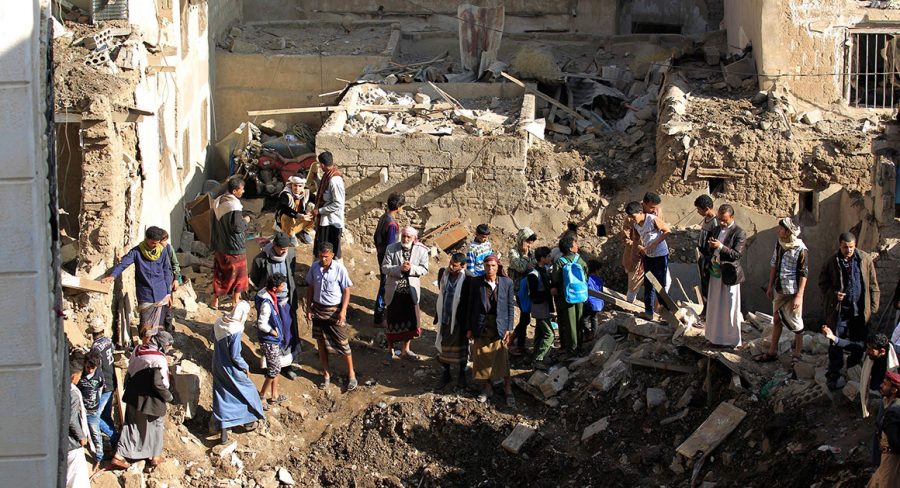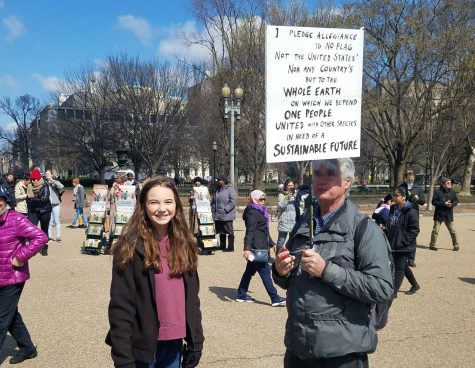Why is No One Talking About Yemen?
People examining damage done by an airstrike in the Yemeni capital.
August 29, 2018
After years of turmoil and blatant war crimes, the United Nations has finally taken some action against the Yemeni government, the Saudi-led coalition backing them, and the rebel Houthi movement. The U.N. has written a report that alleges these parties have made little effort to minimize civilian causalities in the ongoing Yemeni Civil War and have used arbitrary detentions, torture, enforced disappearances and recruiting of children in their war-efforts. The group plans to share their findings with the United Nations Human Rights Council next month, but many are questioning why this report has taken so long when many were aware human rights violations occurring in the war-torn state.
The conflict in Yemen began in 2015, shortly after the end of the Arab-Spring uprisings. The initial spur of violence began when the Houthis seized control of the western part of the country, forcing President Abdrabbuh Mansour Hadi to flee. In result of what they perceived as an Iranian proxy takeover, the United Arab Emits, Saudi Arabia, and several other states intervened in an attempt to restore the Yemeni government; this group has been backed by the United States and French intelligence. Many questions the United States’ involvement and partnership with Saudi Arabia, as the United States has historically been the global policeman for humanitarian crises.
Yemen has been dubbed as the world’s worst current humanitarian crisis, yet it is rarely mentioned in the mainstream news. Over 20 million people have been deprived of food and water and around 5 million have lost access to safe shelter. Even though the Yemeni people are facing serious crimes against humanity, their situation has been neglected by global powers and Western media. One of the key factors for this neglect may be the United States’ role in the conflict and their fear of appearing as an aggressor, another reason for this may be the conflict in Syria.
The Syrian civil war has been at the forefront of Ameican media, painting the Syrian government as the villain. One of the main reasons for this emphasis on Syria may be the post-Cold War powers interfering in the conflict: the United States, and Russia. The media attention on Syria has allowed the Trump presidency to increase America’s participation in Yemen. This has lead many to believe that the exclusion of the Yemeni crisis has been purposeful by the Trump administration, to ensure the American public will not challenge U.S. involvement. The increase in American support for Saudi Arabia has come with an increase in weapon sales to the Saudi government. Some argue that this puts the United States at fault for some of the human rights violations in Yemen.
For many, the conflict in Yemen is frustrating due to the lack of media coverage and seemingly inability to help the Yemeni people. This frustration is a by-product of the lack of news coverage. There is no solution to the conflict in Yemen, but as global citizens, we must raise awareness of the conflict. All parties must be held accountable for the proven injustices they have committed, even parties indirectly involved in the conflict. One of the most effective ways for this accountability to be given is through news coverage of the Syrian conflict, Western media outlets are neglecting their journalistic duties by ignoring such conflict. Some effective ways to provide assistance to Yemen are by joining a local UNICEF chapter, donating to non-profits providing relief, and by raising awareness.


